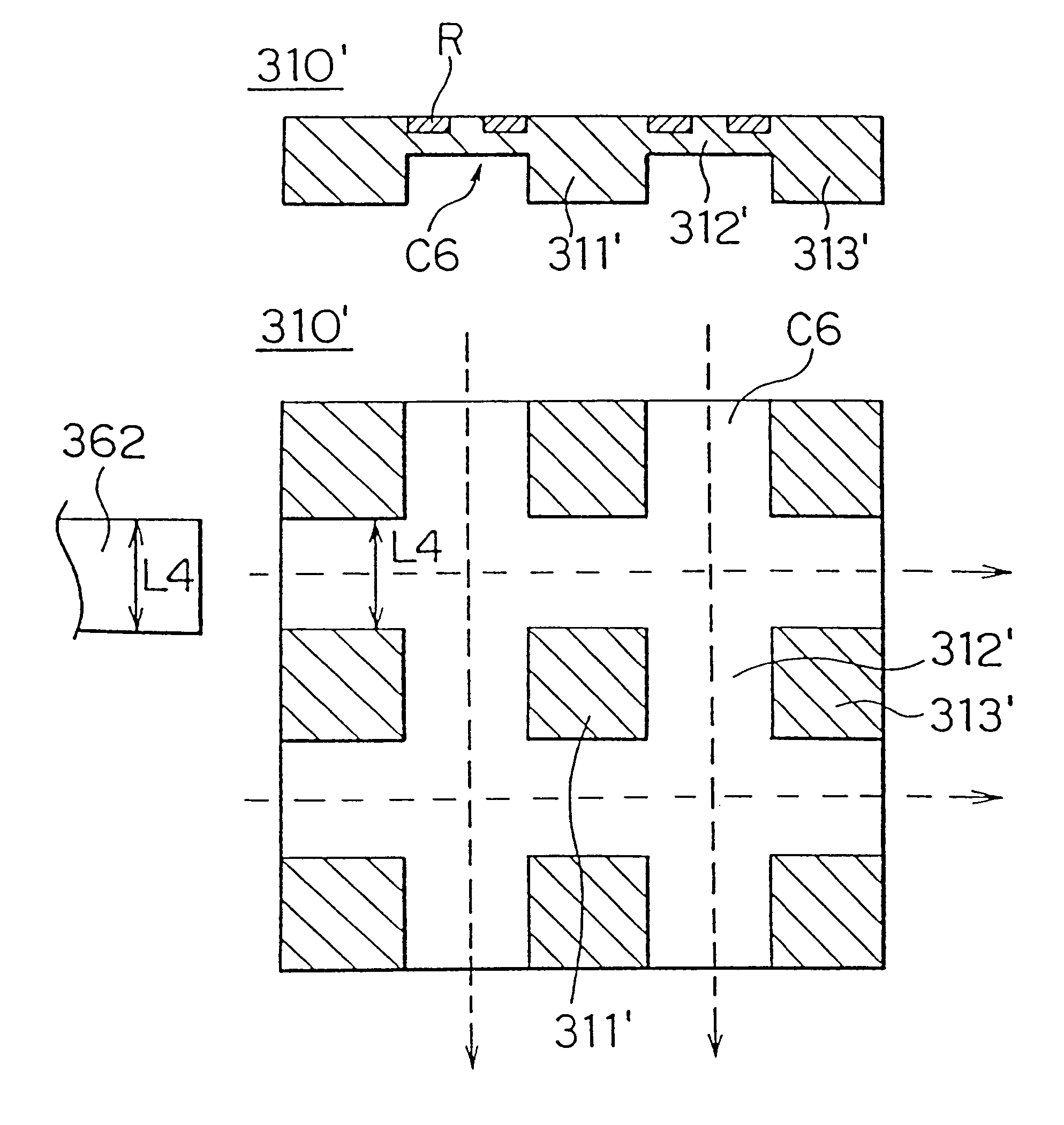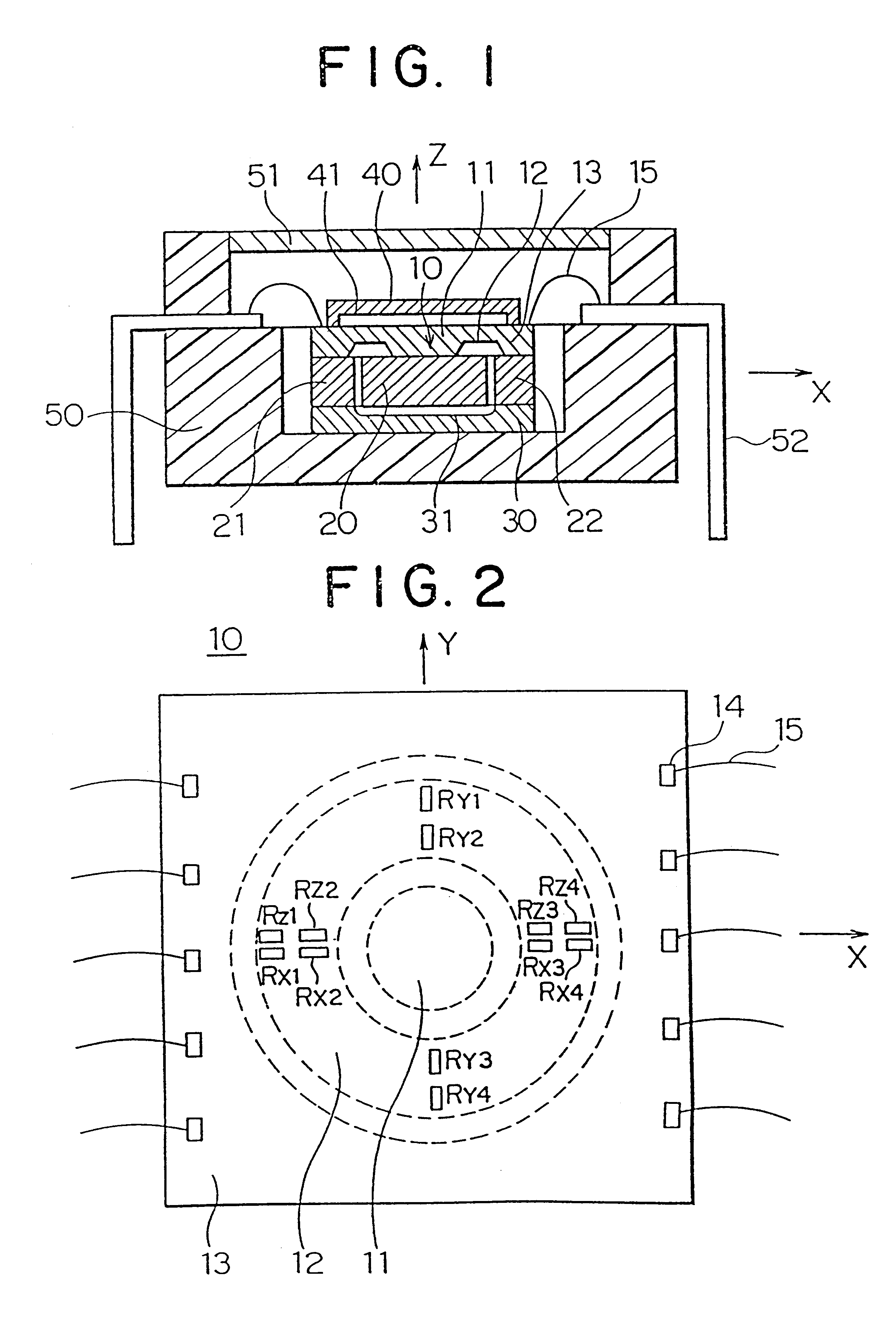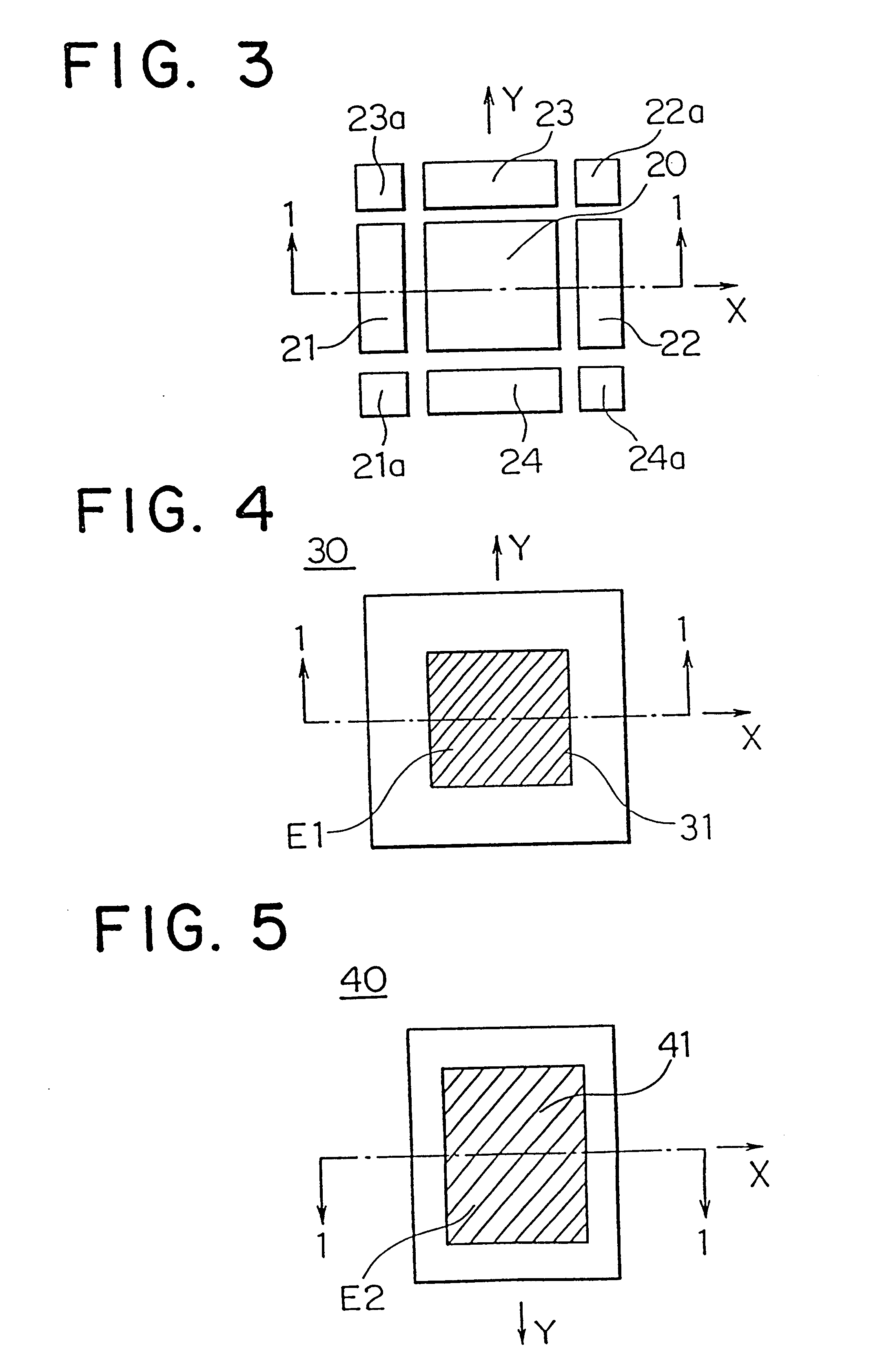Method of manufacturing a sensor detecting a physical action as an applied force
a manufacturing method and sensor technology, applied in the direction of force measurement using piezo-resistive materials, instruments, force measurement, etc., can solve the problems of affecting the reliability of measured values, affecting the output characteristic with respect to respective axial directions, and affecting the accuracy of measurement results
- Summary
- Abstract
- Description
- Claims
- Application Information
AI Technical Summary
Benefits of technology
Problems solved by technology
Method used
Image
Examples
Embodiment Construction
.sctn.1 BASIC STRUCTURE OF THE SENSOR
1.1 Structure of the Acceleration Sensor
This invention can be widely applied, in general, to an apparatus for detecting a physical quantity exerted as an external force, and can be utilized not only to a force sensor but also to an acceleration sensor, or a magnetic sensor. In other words, all sensors are common in the basic structure of the central portion thereof. Accordingly, the object to which this invention is applied will be briefly described by taking an example of an acceleration sensor.
FIG. 1 is a structural cross sectional view showing an example of an acceleration sensor. The component serving as the central unit of this sensor is a semiconductor pellet 10. In this example, a single crystal substrate of silicon is used. The top view of the semiconductor pellet 10 is shown in FIG. 2. The cross section of the semiconductor pellet 10 shown at the central portion of FIG. 1 corresponds to the cross section cut along the X-axis of FIG. 2. T...
PUM
| Property | Measurement | Unit |
|---|---|---|
| angle | aaaaa | aaaaa |
| width | aaaaa | aaaaa |
| mechanical deformation | aaaaa | aaaaa |
Abstract
Description
Claims
Application Information
 Login to View More
Login to View More - R&D
- Intellectual Property
- Life Sciences
- Materials
- Tech Scout
- Unparalleled Data Quality
- Higher Quality Content
- 60% Fewer Hallucinations
Browse by: Latest US Patents, China's latest patents, Technical Efficacy Thesaurus, Application Domain, Technology Topic, Popular Technical Reports.
© 2025 PatSnap. All rights reserved.Legal|Privacy policy|Modern Slavery Act Transparency Statement|Sitemap|About US| Contact US: help@patsnap.com



